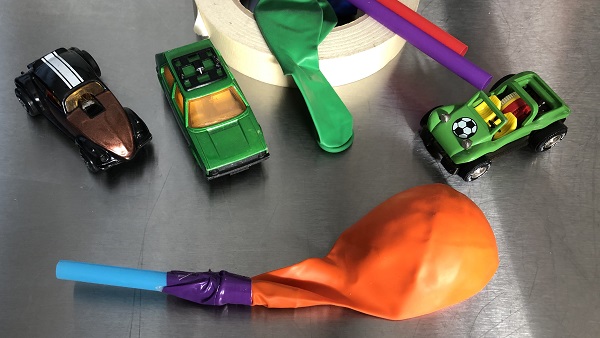
Snot today: Easy, natural immunity hacks for kids this cold season
Photo above by Khamkhor via Unsplash.
Ah, the joys of fall — cozy sweaters, pumpkin everything, and, of course… the sound of sniffles coming from every corner of the house. As parents, the change in seasons often feels like an unofficial kickoff to “sick season,” where germs seem to spread faster than holiday cheer.
This year, though, we’re doing more than bracing for impact. We’re arming ourselves with a healthy, holistic game plan.
Kidsburgh had the chance to speak with Dr. Raquel Zemtsov from UPMC Family Medicine, who shared some insights that go beyond the usual “eat your veggies and get enough sleep” mantra.
Let’s dive into some practical, natural ways to boost our kids’ immunity as we enter the season of runny noses and cough drops:
Cover Up and Humidify: The Nose Knows
It turns out, the nose is more than just a cute feature on your kiddo’s face — it’s a frontline soldier in the battle against germs. Dr. Zemtsov emphasized that our noses are one of the first lines of defense against respiratory illnesses, and they can be affected by all sorts of environmental factors. Cold weather and dry air, for example, can weaken those nasal defenses, making it easier for viruses to sneak in.
Her advice? Simple, but effective: Cover up! “Having children cover their noses and mouths with a scarf or mask when they are outside in cold weather can help mitigate this, as can humidifier use in the house when the air is especially dry,” she explains.
So, before you send your little one off to school or playtime outside, make sure they’ve got their nose cozy, and consider running a humidifier in their room to keep the air moist and nasal passages happy.
Vitamin D: Don’t Let the Sun Ghost You
As the days grow shorter and the sun seems to disappear earlier, it’s tempting to let outdoor playtime dwindle. But don’t! Vitamin D, often called the “sunshine vitamin,” plays a crucial role in immune health. According to Dr. Zemtsov, children with low vitamin D levels may be more susceptible to respiratory illnesses like colds and flu.
“As our days shorten and it starts to cool down, it is still important to try and have our children play outside to help them get enough vitamin D,” she says.
And before you slather on sunscreen, take note: While it’s important to protect their skin, a little bit of sun exposure is still needed — especially during the colder months. And if you’re worried your child isn’t getting enough vitamin D from the sun alone, consult your pediatrician about possible supplements. As always, balance is key!
Gut Health: The Secret Weapon
Here’s a fun fact: Our gut plays a major role in our immune system. “A healthy gut with a well-balanced microbiome promotes immunity in many different ways,” Dr. Zemtsov says. Healthy bacteria in the gut release chemicals that activate white blood cells to fight infections and even improve the body’s response to vaccines. Plus, a balanced gut helps regulate inflammation, preventing the immune system from going haywire and causing other health issues.
So, how do you foster a gut that’s ready to fight the good fight? It starts with food. Dr. Zemtsov recommends a diet that’s rich in fiber, full of a variety of plants, and low in processed foods and sugar.
“Creating and maintaining a healthy gut microbiome relies heavily on a diet that is high in fiber, includes many different types of plants, relies mostly on whole foods, is low in sugar, and avoids highly processed foods and additives,” she says. Don’t worry: If your kid’s taste buds protest, you can get creative with smoothies, fun snacks, or involve them in picking out their fruits and veggies.
Another way of feeding their gut the good stuff: probiotics and prebiotics.
Probiotics are the good bacteria found in foods like yogurt, kefir, and even pickles (some kids love pickles!). Prebiotics, on the other hand, are like the fuel for these good bacteria. Fiber-rich foods like bananas, oats, and whole grains offer prebiotics feed that good gut army and keep everything balanced.

Grounding, Meditation, and Time in Nature
We know being out in nature is good for us, but did you know it can help boost immunity, too? Dr. Zemtsov points out that time spent in nature has been shown to reduce stress, which can have a direct impact on our immune systems. “Activities that decrease stress in children will also strengthen their immunity. Time in nature has been shown to be beneficial for stress reduction, so we can also infer that time in nature can also improve immunity,” she says.
One practice that’s been gaining traction is “grounding” — the idea that physically connecting to the earth (think barefoot walks on soft grass) can improve overall well-being, including immune function. Whether it’s a little forest bathing (yes, that’s a thing—it just means spending time among trees!), a moment spent lying on the grass or even gardening, letting your kids mindfully connect physically with nature not only builds up vitamin D, but can be a powerful immune booster.
Another option? Meditation for kids. Simple breathing exercises or guided meditations can help reduce stress and anxiety, which are major culprits in weakening the immune system. Even five minutes of mindful breathing each day can make a difference. For younger kids, try apps with playful, kid-friendly guided meditations, or make it a family practice to breathe and relax together.
Local, Seasonal Foods and Immune-Boosting Remedies
Boosting your child’s immune system starts with local and seasonal foods. Think elderberry syrup —many parents swear by it during flu season. You can boost the whole family’s health by incorporating fresh, locally-sourced ingredients into meals.
Seasonal foods offer essential nutrients our bodies need at different times of the year. For instance, root vegetables like carrots and sweet potatoes provide beta-carotene, while winter citrus fruits are rich in vitamin C. Choosing in-season, local ingredients ensures fresher, nutrient-packed meals that help fend off illness.
And don’t forget local organic honey! This natural sweetener is not only tasty, but also boasts antibacterial properties that can soothe sore throats. It’s a healthier alternative to processed sugars, reducing inflammation and supporting immune function. Drizzle it over yogurt or mix it into herbal teas for a delicious health boost.

Stress Less, Sleep More
We all know that stress can wreak havoc on our health. But for kids, the impact can be even more profound.
“Stress can absolutely impact a child’s health beyond just their emotional and behavioral well-being. Important ways to decrease stress in children include adequate sleep, exercise, social engagement, social support, enrichment, and healthy eating.
Among the most important factors: Ensuring a child has a person they feel safe around and can speak with openly. Sometimes children feel more open to speaking to someone who is not their caregiver, even if their caregivers are doing an excellent job and are completely supportive. Other adults you can encourage your children to speak to include teachers, school counselors, a therapist, their doctor, or other trusted adults,” says Dr. Zemtsov.
One of the most powerful ways to combat stress? Sleep. Ensuring your child is getting enough high-quality rest is essential. Dr. Zemtsov reminds us that different ages need different amounts of sleep, with toddlers needing up 11-14 hours and teens needing at least 8-10 hours. The amount differs from kid to kid too, some kids have lower sleep needs and some need a lot of zzz’s to feel rested.
In any case, we want to set them up for optimal sleep. So aim for creating a bedtime routine that includes no screens before bed, a consistent sleep schedule, and a cool, quiet room.
Make Time for Play — and Art
And don’t forget: Physical activity isn’t just about organized sports. Encouraging your child to play freely, explore new activities, and express themselves creatively can also lower stress and boost immunity.
“Art and other creative activities can help reduce stress by allowing children to develop their self-awareness and self-expression, leading to better emotional regulation. Some suggestions I have include coloring, modeling clays, or building blocks for younger children. Older children may enjoy and find benefit from writing and journaling, learning a musical instrument, or honing a fine art like sketching or painting,” Dr. Zemtsov adds.
So, whether it’s dance parties in the living room, coloring, or even picking up a musical instrument — bring on the health-boosting fun. Cheers to good times and good health!


















